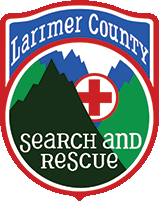Followership
Keith Schafer
March 15, 1998
Throughout our training and development as search and rescue leaders, an effort is made to teach us how to lead. Unfortunately, there is truth to the old saying that "in order to be a good leader you must be a good follower." Followership is a much harder skill to develop over the long term. In our early days in search and rescue, we found it easy to follow because of the intimidation factor given to the more tenured member's knowledge and position. As we developed our own self confidence and were given the opportunity to be a leader, we began to lose our ability to be a good follower.
The ability to keep quiet, maintain radio discipline and demonstrate a non-confrontational attitude is a skill more difficult to acquire than learning a safe high line system. It requires more self-control, patience and knowledge of search and rescue organization. It requires more experience. A good follower is not an unchallenging and brainless member of the Team, following like a sheep to slaughter. A good follower is able to present the information the leader needs, then is able to back away and let the leader assimilate the information into the overall plan. That is if the leader feels it is a necessary or a valid position to take. Don't be a nag or create dissent in the ranks. We must remember that there is more than one way to conduct a safe and efficient operation. It may not be the way we may have conducted it, but, if we give it a chance, it will most likely have equal merits as "our way." If you feel strongly about the issue, discuss it with the Team Leader after the mission. There's always more to learn.
The only caveat is when an issue of safety is at hand. If a definite threat to the safety of the individual Team member, the Team or the patient is seen, it is a follower's responsibility to bring it to the quick attention of the Team Leader. If the Team Leader does not take action, then it may be necessary for the follower to remove themselves from the rescue/search and advise the Incident Commander. In 27 years of search and rescue, I have never observed a Team Leader not take action if a safety concern exists that can be corrected. By virtue of what we do, some operations can be dangerous, but through proper training and safety procedures, that threat can be reduced significantly. Courage should rarely be a consideration. With more skill, we require less courage.
When part of a Team, only one person has a need to be on the radio with other teams or the Command Post. A good follower will maintain radio discipline by staying off the radio unless specifically queried, internal communications are needed or when directed to communicate by the Team Leader. A follower does not need to know every detail of the mission. Make your traffic short and concise. Think before transmitting and always be aware that we are not the only ones on the frequency. Any frequency.
Work harder at becoming a good follower. Give the leader the room and support necessary to make safe decisions. For those that are in a leadership role, give your followers a chance to voice their concerns and opinions. If there is time, explain why you disagree or agree with there position. If not, discuss it with them after the mission. The image we present to the patient, family and friends, news media, other teams and one another goes far in developing our professional image.



